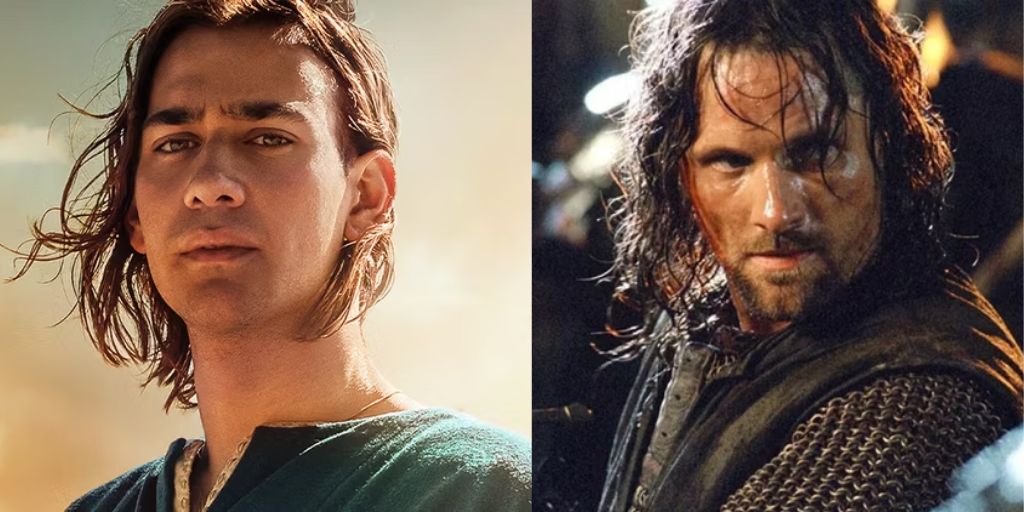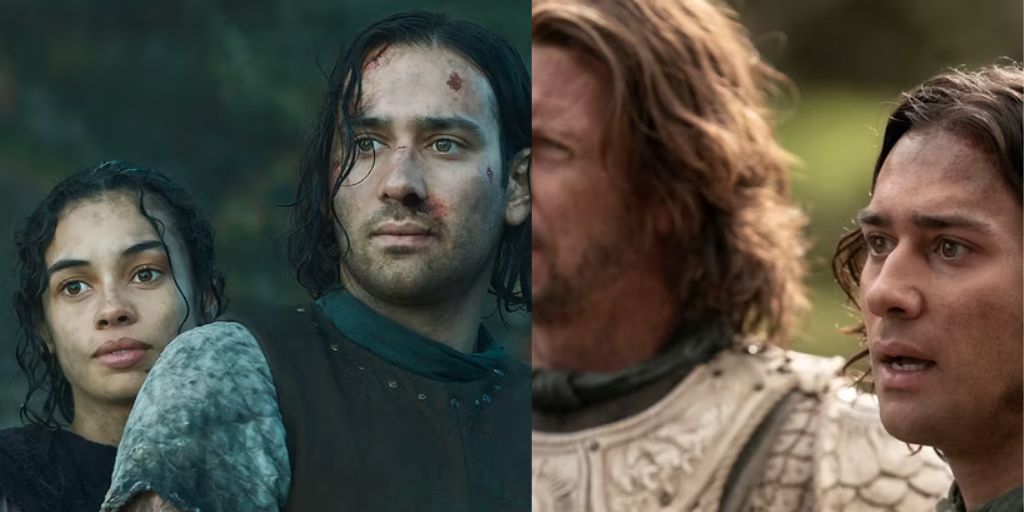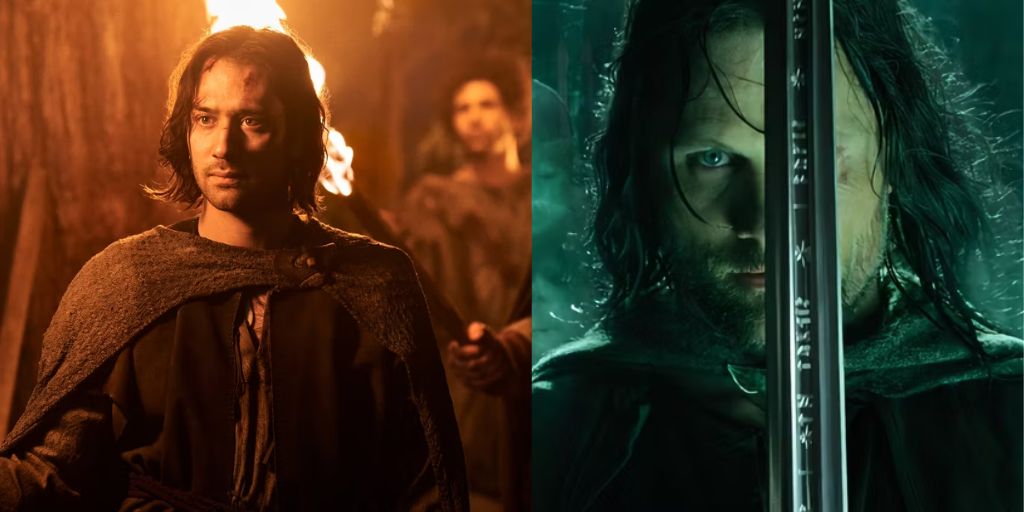Anyone who has watched Peter Jackson’s The Lord of the Rings trilogy remembers Aragorn’s (Viggo Mortensen) journey across three films to accept his destiny as the heir to the throne of Men. This honor is more of a burden than an opportunity for the humble Aragorn.
His royal bloodline makes him an enemy and target of the Dark Lord Sauron. Yet, Aragorn is not frightened by threats to his life. His biggest fear is repeating the mistakes of his ancestor, Isildur (Harry Sinclair) — a heroic prince-turned-king who fell victim to the One Ring’s evil power.
Prime Video’s The Lord of the Rings: The Rings of Power series, set thousands of years before Aragorn and the rest of the Fellowship stand against Sauron, introduces a much younger and more innocent Isildur (Maxim Baldry) into the main story. But how exactly are Isildur and Aragorn connected?
Who Is Isildur in The Lord of the Rings Books?
Before his corruption and eventual death, Isildur, his brother Anárion (who hasn’t yet appeared in The Rings of Power), and their father Elendil (Lloyd Owen) live on the island kingdom of Númenor.
Without revealing specific potential spoilers that The Rings of Power might adapt from J. R. R. Tolkien’s works, the series has hinted at a bleak future for Númenor.
Before this disaster occurs, Isildur, Anárion, and Elendil help some of their people escape to Middle-earth. Together, they establish the twin kingdoms of Gondor and Arnor as a new home for the surviving Númenoreans. Elendil serves as High King over both regions but mainly oversees Arnor, leaving Gondor’s day-to-day governance to his sons.
During this time, Sauron (Charlie Vickers) successfully creates the One Ring. Faced with his growing threat, Elendil and the Elven High King Gil-galad (Benjamin Walker) form the Last Alliance of Elves and Men and confront Sauron at his Mordor fortress.
The opening sequence of The Lord of the Rings: The Fellowship of the Ring shows this critical battle, during which both Elendil and Anárion (according to Tolkien’s works, though not seen onscreen in Fellowship) die.
Enraged, Isildur takes a shard of his father’s shattered sword — the same weapon that will later be reforged for Aragorn in The Return of the King — and delivers the final blow against Sauron, cutting the One Ring from his finger.
Why Is Aragorn Isildur’s Heir in The Lord of the Rings?
However, Isildur keeps the Ring as a family heirloom instead of destroying it in the fires of Mount Doom. Not long after, Isildur and three of his four sons die when a large group of orcs ambushes them. Isildur’s only surviving son, Valandil, becomes the ruler of Arnor, while Anárion’s son, Meneldil, governs Gondor.

Nearly 40 generations later, Aragorn is born to his father, Arathorn II, and his mother, Gilraen. A previous marriage between an Arnor king and a Gondor princess had already united the kingdoms’ lineages, giving Aragorn a legitimate claim over both cities (Gondor survives under the rule of its Stewards, but Arnor had crumbled over time, its people becoming the nomadic Rangers of the North).
The Rings of Power Makes Isildur Sympathetic
To some extent, all of Isildur’s descendants live under the shadow of his mistake. But Aragorn, the reluctant future king as portrayed in Jackson’s trilogy, feels ashamed of his heritage and initially resists all connections to his birthright.
Season 1 of The Rings of Power gives fans a view of what Isildur might have been like before his downfall, and it’s surprisingly believable. Even though Isildur is descended from Númenor’s founder, in The Rings of Power, he is not royalty — he’s a young sailor. He feels out of place and yearns for more than the role he’s expected to fill, and he has a strained relationship with Elendil, to whom Isildur is eager to prove himself.
Isildur is also a son who misses his mother. In Season 1, when Galadriel (Morfydd Clark) asks Elendil what happened to his (currently unnamed) wife, a visibly affected Elendil only replies that “she drowned.”
Season 2, Episode 3 reveals more details about this tragedy: Isildur explains that his mother drowned while trying to save his life. Isildur has kept this truth from his family ever since. He often dreams about his mother, and his lifelong guilt and grief over what he sees as his responsibility drive him — even though he still doesn’t know where this motivation will lead him.
This vulnerability not only makes Isildur a sympathetic character, but it also highlights how he and Aragorn are opposites. Isildur’s direct guilt, though unfounded, pushes him to seek greatness; Aragorn’s guilt over actions that are far removed from him causes him to withdraw into the shadows.

Ultimately, Aragorn rejects the One Ring, reunites his kingdom, and redeems his ancestor’s mistake — a mistake that might be due to Isildur’s pride, or the Ring corrupting his good intentions, or both.
While some men desire the Ring for selfish gain, Tolkien shows how even the most morally upright people can be corrupted by its power. With Isildur currently stranded in Mordor, Season 2 of The Rings of Power seems ready to examine the key factors leading to his downfall.
Showrunners Patrick McKay and J.D. Payne have already described the series’ second season as “all about the villains,” and although Isildur is not a villain in the traditional sense, his decision has devastating, far-reaching consequences.




